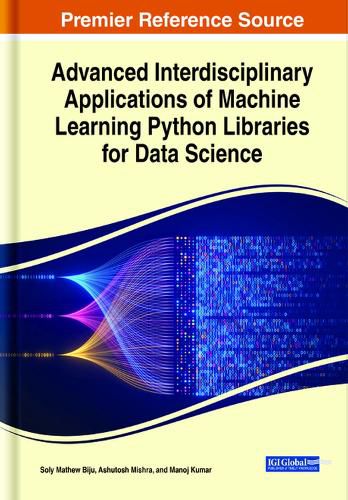Readings Newsletter
Become a Readings Member to make your shopping experience even easier.
Sign in or sign up for free!
You’re not far away from qualifying for FREE standard shipping within Australia
You’ve qualified for FREE standard shipping within Australia
The cart is loading…






This title is printed to order. This book may have been self-published. If so, we cannot guarantee the quality of the content. In the main most books will have gone through the editing process however some may not. We therefore suggest that you be aware of this before ordering this book. If in doubt check either the author or publisher’s details as we are unable to accept any returns unless they are faulty. Please contact us if you have any questions.
The world is approaching a point where big data will start to play a beneficial role in many industries and organizations. Today, analyzing data for new insights has become an everyday norm, increasing the need for data analysts to use efficient and appropriate tools to provide quick and valuable results to clients. Existing research in the field currently lacks a full coverage of all essential algorithms, leaving a knowledge void for practical implementation and code in Python with all needed libraries and links to datasets used. Advanced Interdisciplinary Applications of Machine Learning Python Libraries for Data Science serves as a one-stop book to help emerging data scientists gain hands-on skills needed through real-world data and completely up-to-date Python code. It covers all the technical details, from installing the needed software to importing libraries and using the latest data sets; deciding on the right model; training, testing, and evaluating the model; and including NumPy, Pandas, and matplotlib. With coverage on various machine learning algorithms like regression, linear and logical regression, classification, support vector machine (SVM), clustering, k-nearest neighbor, market basket analysis, Apriori, k-means clustering, and visualization using Seaborne, it is designed for academic researchers, undergraduate students, postgraduate students, executive education program leaders, and practitioners.
$9.00 standard shipping within Australia
FREE standard shipping within Australia for orders over $100.00
Express & International shipping calculated at checkout
Stock availability can be subject to change without notice. We recommend calling the shop or contacting our online team to check availability of low stock items. Please see our Shopping Online page for more details.
This title is printed to order. This book may have been self-published. If so, we cannot guarantee the quality of the content. In the main most books will have gone through the editing process however some may not. We therefore suggest that you be aware of this before ordering this book. If in doubt check either the author or publisher’s details as we are unable to accept any returns unless they are faulty. Please contact us if you have any questions.
The world is approaching a point where big data will start to play a beneficial role in many industries and organizations. Today, analyzing data for new insights has become an everyday norm, increasing the need for data analysts to use efficient and appropriate tools to provide quick and valuable results to clients. Existing research in the field currently lacks a full coverage of all essential algorithms, leaving a knowledge void for practical implementation and code in Python with all needed libraries and links to datasets used. Advanced Interdisciplinary Applications of Machine Learning Python Libraries for Data Science serves as a one-stop book to help emerging data scientists gain hands-on skills needed through real-world data and completely up-to-date Python code. It covers all the technical details, from installing the needed software to importing libraries and using the latest data sets; deciding on the right model; training, testing, and evaluating the model; and including NumPy, Pandas, and matplotlib. With coverage on various machine learning algorithms like regression, linear and logical regression, classification, support vector machine (SVM), clustering, k-nearest neighbor, market basket analysis, Apriori, k-means clustering, and visualization using Seaborne, it is designed for academic researchers, undergraduate students, postgraduate students, executive education program leaders, and practitioners.